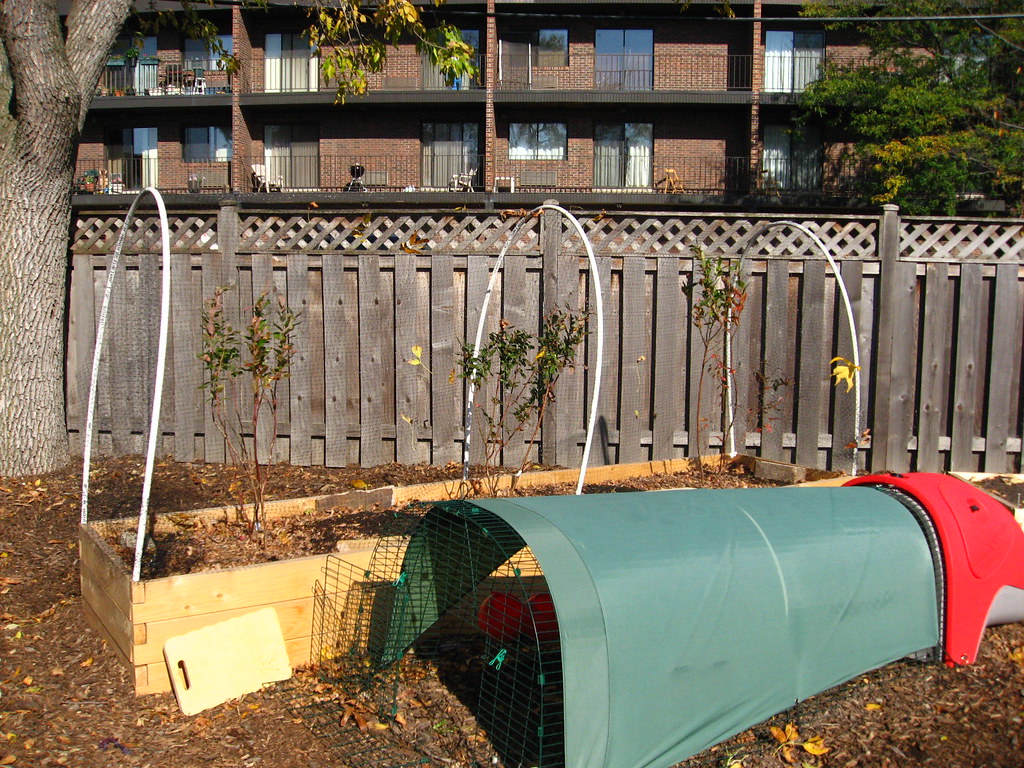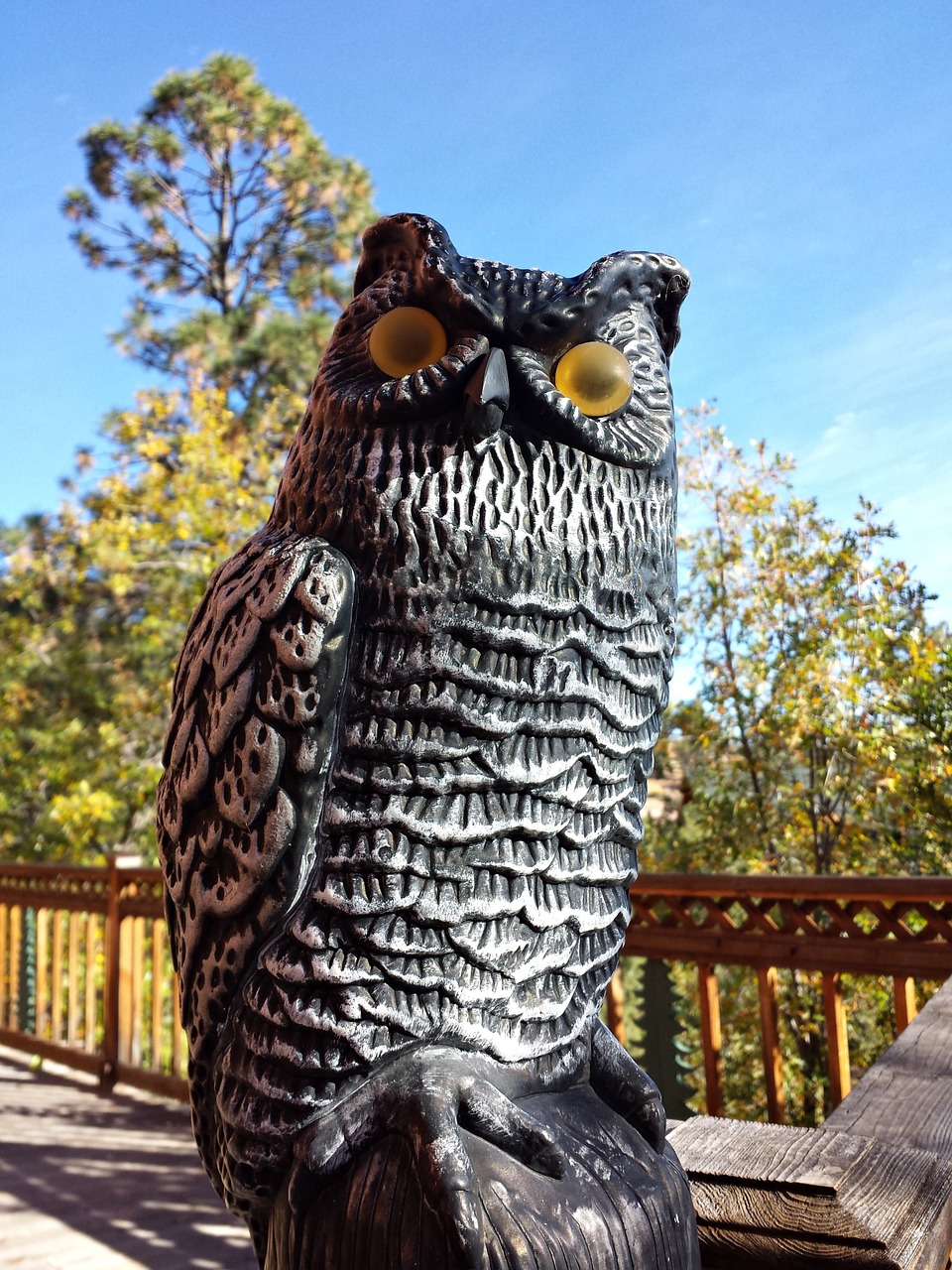Bird Netting:
The most common protection from birds is netting. This plastic mesh allows sunlight to pass through & protects fruit that isn’t directly touching the net from pecking. You’re much better off building a structure rather than just throwing netting directly over your berry bushes. Here’s one simple frame for blueberries using PVC.

Shiny Things:
Hanging things in & around your orchard that reflect sunlight will deter birds, such as unused CDs, aluminum foil, pie pans, metallic pinwheels, & reflective tape. These things should be placed only right before and during harvest season and then removed, as birds will learn that they’re not harmful after a while. Lots of things in your home environment can be repurposed for this job, but there’s also products like Irri-tape if you want to get fancy!
Kool-Aid & Sugar Sprays:
Did you know that birds can’t process the more complex molecule of sucrose (sugar)? Spraying sugar water or grape kool-aid on your cherries, blueberries, or other fruit can protect them from bird predation and of course washes off easily and harmlessly after you pick them! More info. Kaolin clay, cayenne pepper, and other sprays can also help.
Scarecrows, Fake Owl or Hawk Figures:

Place things throughout the orchard at proper heights that look like your birds’ & squirrels’ natural enemies!
Similarly, you can build roosting spots for owls & hawks at the right height to attract the real thing. A couple of cross beams are all it takes.
Sacrifice Crops:
Since biodiversity in the city is less than in more preserved areas, competition for food is high. The Philadelphia Orchard Project aims to plant a wide variety of edibles in its partner orchards, some of which are less familiar. Mulberries in particular are effective as as a bird distraction, as they ripen at the same time as both cherries and blueberries and are sweeter than either. You might also consider planting some more sour fruits, including pie cherries, currants, gooseberries, and elderberries, which birds are less interested in. A more diverse orchard ensures a more viable ecosystem & still gets you a good harvest!
Birdfeeders:
If you have enough space, experiment with keeping a birdfeeder or dried corn on site away from fruit & nut trees & berry bushes. If animals fill up on other foods, they may stay away from your crops!
Easy birdfeeders to make with Kids
Bird Attracting & Insectary Plants:
Though it may be counterintuitive, planting things that attract beneficial insects & birds will also provide higher energy protein for birds that eat insects & improve your ecosystem. The higher nutrition foods, for omnivorous birds, will fill them up on bugs before fruits. Here is a link for a variety of “birdscaping” articles: birdsandblooms.com/birding/attracting-birds/plants-and-trees-that-attract-birds/
Sources: